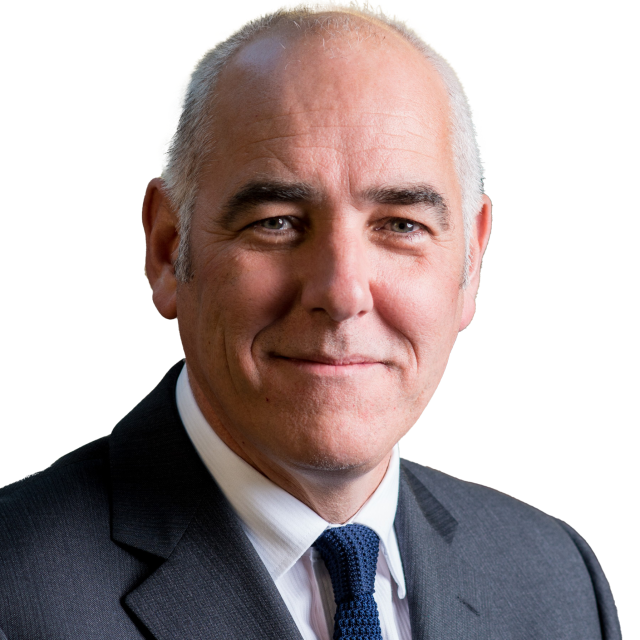
In today’s increasingly diverse workplace, understanding demographic shifts is crucial for businesses aiming to maintain a competitive edge – and for investors seeking to identify the winners. During my recent presentation at the Janus Henderson London Knowledge Exchange event, I provided an overview of my ongoing research into generations and the future of work. I concluded with a summary of a recent research project undertaken in partnership with Janus Henderson, which explored the impact of technology on the four ‘working’ generations. The research also explored each generation’s attitudes to sustainability, environmentalism, and other contemporary social and technological issues.
This article provides a summary of the main points discussed in the presentation and highlights the value of generational research for understanding future market drivers.
The nature of demographic shifts
The term ‘demographic shift’ describes changes in the age distribution, population size, and geographic dispersion of individuals and groups over time. These transformations typically occur due to factors such as rising and falling birth and death rates, and changes in societal norms and behaviours. For businesses, understanding demographic shifts can help develop strategies for responding to fluctuating consumer demands. It can also help reduce staff turnover and cultivate a talent pipeline.
In recent years I have provided consultancy to hundreds of organisations around the world. I have found that demographic shifts are strongly affected by the spread of technology, particularly smartphones, tablet devices, and social media. Currently, according to the Office of Communications, which regulates broadcasting and telecommunications in the UK, around one-in-five under-four-year-olds in the UK has access to a smartphone, while approximately fifty percent of teenagers consider themselves ‘addicted’ to their phone.
In turn, the ubiquitous spread of technology is leading to greater individualisation within society while slowing down life trajectories. Technology is making us more individual than ever, while keeping us psychologically younger, for longer.
Understanding generational differences
Another way of exploring demographic shifts is through the ‘lens’ of generations. Generational research typically categorises demographic cohorts into groups based around birth years.
For businesses and investors, understanding the impact that different generations have on an increasingly diverse workplace is crucial. Each generation brings to work its own unique strengths and challenges. Generations work differently, communicate differently, and respond differently to managers. A one-size-fits-all approach, if applied in a multi-generational environment, will inevitably fail. On the other hand, businesses than can harness these differences will be able to build and maintain cohesive, productive teams. Table 1 provides a brief overview of the four generations currently interacting in the workplace.
Table 1: Overview of the four ‘at work’ generations
| Generation | Characteristics | Challenges |
| Baby Boomers (1946-1964) | Work Ethic: Highly dedicated and loyal to their employers.
Experience: Bring significant experience and knowledge to their roles. Communication: Prefer face-to-face interactions and traditional communication methods. Motivations: Job security, monetary rewards, and recognition of their expertise. |
May struggle to adapt to new technologies. Potential difficulties in relating to younger colleagues’ values and work styles. |
| Generation X
(1966-1980) |
Independence: Known for their self-reliance and valuing work-life balance.
Technology: Comfortable with technology, having grown up with the advent of personal computers. Communication: Prefer direct and straightforward communication. Motivations: Value flexibility, autonomy, and opportunities for personal growth. |
Often face the dual pressures of caring for aging parents and supporting their own children. Can feel overshadowed by the larger Baby Boomer and Millennial generations. |
| Millennials
(1981-1996) |
Tech-Savvy: Proficient with digital technologies, having grown up with the internet.
Collaboration: Value teamwork, frequent feedback, and validation. Communication: Prefer digital communication methods and transparency. Motivations: Driven by purpose, meaningful work, and opportunities for advancement. |
Perceived as entitled or impatient by older generations. High expectations for rapid career progression can lead to frustration. |
| Generation Z
(1997-2010) |
Digital Natives: Extremely adept with digital technology, having grown up with smartphones and social media.
Entrepreneurial: Display a strong entrepreneurial spirit and desire for independence. Communication: Favour short, visual forms of communication and instant feedback. Motivations: Seek job security, diversity, inclusion, and ethical practices in the workplace. |
Short attention spans and preference for multitasking can impact productivity. May need more guidance and mentorship as they are early in their careers. |
Source: Dr Paul Redmond, 2024.
Table 2 illustrates the distribution of generations across regions. Having recently overtaken Generation X, Millennials are now the largest single generational cohort in the workplace. My research has shown that in many organisations, Millennials are now at middle-management level, which can be challenging for them and their direct-reports. Millennials often struggle to have open and candid conversations, particularly when having to address difficult topics. Supporting Millennials, providing them with opportunities to develop skills and confidence, should be viewed as a key objective by Boomer and Generation X executives.
That said, given their familiarity with technology and capacity to work in teams for civic and community-orientated goals, developing Millennial middle-managers can offer considerable opportunities for businesses and investors, particularly in areas related to sustainability and environmentalism.
Table 2: Distribution of Generations across Regional Workforces
| Region | Boomers | Generation X | Millennials | Generation Z |
| USA | 25% | 33% | 35% | 7% |
| EMEA | 10-15% | 25-30% | 35-40% | 15-20% |
| UK | 14% | 33% | 35% | 18% |
Source: Bureau of Labor Statistics; Purdue Global; Catalyst; CIPD; World Economic Forum; McKinsey & Company; Pew Research Center; Forage; Purdue Global. EMEA=Europe, Middle East, Africa. Data taken from various sources as at July 2024.
Janus Henderson Demographic Preferences Survey, 2024
Earlier this year, in conjunction with Janus Henderson, I undertook a groundbreaking research project aimed at exploring each generation’s attitudes to environmental sustainability, consumer purchasing, artificial intelligence, preferred communication channels, attitudes to electronic vehicles, and cryptocurrencies.
The findings illustrated the extent that inter-generational attitudes to such issues vary according to generations. To be published in full later this year, key findings from the research include:
- Sustainability is important to all generations, but peaks with Millennials and Gen Z.
- Millennials are willing to organise their personal finances along sustainable and environmental lines.
- Millennials are more likely to purchase sustainable products and services and will pay more for them.
- Email remains the most popular communication platform for all generations, particularly when conveying sensitive information about health.
- Boomers and Gen X are cautious about AI, particularly in relation to its impact on jobs. Millennials and Gen Z are more optimistic, seeing it as a source for future employment.
- Electric Vehicles: Millennials and Gen Z are the most positive and willing to purchase.
From this research, a new generational typology has been developed. Millennials emerge as “Digital Environmentalists” – a group motivated by strong ethical and sustainable values, while possessing the skills, knowledge, and optimism to take advantage of the rise of AI. Generation Z, on the other hand, are “Tech Pioneers” – the first truly digital natives, comfortable with technology but who value individuality and privacy. Baby Boomers are cast as “Traditional Stewards-” they value hard work, loyalty and tradition and serve as stewards of established systems and processes. Generation X are “Pragmatic Nomads” – independent, self-reliant, pragmatic – highly sceptical when faced with messages related to sustainability, environmentalism, and new technology.
“Most people are aware of differences in attitudes of certain generations. But looking deeper into topics that have more recently come to the fore to shape our lifestyles provides valuable insight. Technology is, of course, central to most of these themes and this demonstrates its importance in helping drive change. It is clear that this change brings exciting investment opportunities but also risks that need to be carefully navigated.”
Alison Porter, Portfolio Manager, Technology Equities
Capitalising on new opportunities
In 1831, the French writer Alexis de Tocqueville wrote, ‘Every generation is a new people.’
This new research, undertaken in partnership with Janus Henderson, has found this still to be the case.
Generational shifts are rewiring the workplace. By analysing and responding to generational change, businesses and investors can mitigate potential risks and capitalise on emerging opportunities. Creating an environment in which strong and effective multi-generational teams can thrive will help retain talent while also ensuring that all employees, regardless of their generation, have opportunities to build worthwhile, productive careers.
